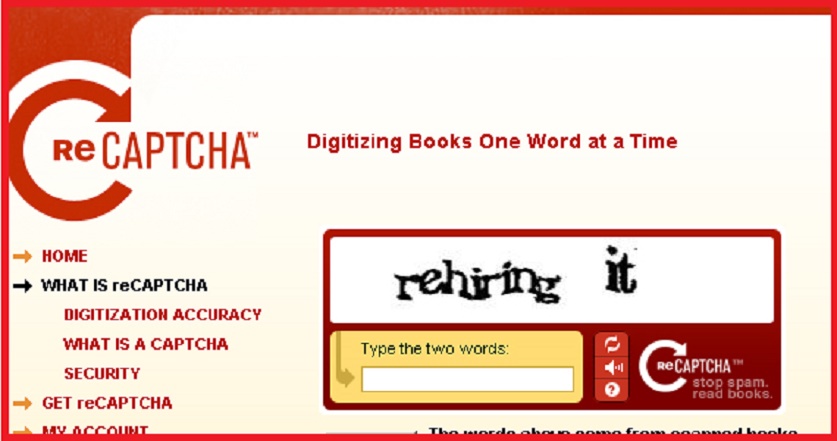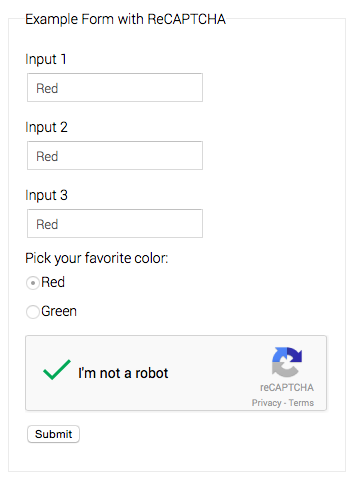
Are you a Robot? Introducing “No CAPTCHA reCAPTCHA”
Google has been testing a new version of reCAPTCHA that makes it easier for users to prove that they’re actually human and not bots. The new reCAPTCHA no longer uses a CAPTCHA (an acronym for “Completely Automated Public Turing test to tell Computers and Humans Apart”), so you no longer have to deal with blurry house number images or squiggly words from scanned books.

No CAPTCHA reCAPTCHA – Google Operating System
reCAPTCHA protects the websites you love from spam and abuse. So, when you go online—say, for some last-minute holiday shopping—you won’t be competing with robots and abusive scripts to access sites. For years, we’ve prompted users to confirm they aren’t robots by asking them to read distorted text and type it into a box, like this:

But, we figured it would be easier to just directly ask our users whether or not they are robots—so, we did! We’ve begun rolling out a new API that radically simplifies the reCAPTCHA experience. We’re calling it the “No CAPTCHA reCAPTCHA” and this is how it looks:

“On websites using this new API, a significant number of users will be able to securely and easily verify they’re human without actually having to solve a CAPTCHA. Instead, with just a single click, they’ll confirm they are not a robot.” Here’s an example of sitethat uses the new API.
Google also tests other simplified CAPTCHAs that are better suited for mobile devices. For example, one of the CAPTCHAs asks you to select images that show a cat.
Another experiment asks you to pick your favorite color.

